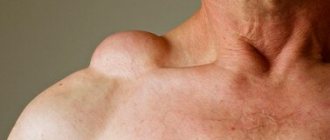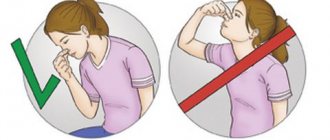Perhaps no other specialist is put off visiting as much as a dermatovenerologist. There is a stereotype that it is shameful to suffer from an illness that is part of the specialty of such a doctor. In fact, any disease is easier to treat if it is detected as early as possible. A dermatovenerologist specializes in the detection, prevention and treatment of skin and sexually transmitted diseases. Not all of them are sexually transmitted, and the everyday or hereditary origin of the disease is even more likely, which is why it is unreasonable to feel awkward and hesitate to visit a doctor.
What does a dermatovenerologist treat?
Modern dermatovenereology is one of the most extensive areas of therapeutic science, and a dermatovenereologist treats diseases belonging to its different areas:
- dermatology – diseases of the skin and its appendages: nails, hair, sebaceous and sweat glands – psoriasis, vitiligo, atopic dermatitis, eczema, alopecia, folliculitis, etc.;
- venereology – sexually transmitted diseases, genital infections and sexually transmitted diseases: syphilis, gonorrhea, molluscum contagiosum, chancroid, herpes, trichomoniasis, mycoplasmosis, etc.;
- mycology – diseases caused by fungi, including candidiasis;
- conservative cosmetology, the goal of which is to improve the appearance of the skin without surgery.
List of diseases
If we talk about specific diseases, the list of main diseases that a dermatovenerologist helps to cope with includes:
- candidiasis of the oral mucosa (thrush);
- skin candidiasis;
- psoriasis, eczema, urticaria;
- various types of lichen;
- HIV, AIDS, syphilis, hepatitis C;
- chlamydia, trichomoniasis;
- dermatitis, seborrhea, acne, herpes (genital);
- fungal infections of the skin and nails.
When to contact a dermatovenerologist
Skin is the largest organ of the human body. Currently, there are a huge number of dermatoses and chronic skin diseases, the treatment of which must be carried out in a timely manner. In addition, many skin diseases have a chronic course and are prone to frequent relapses. Contagiousness is another feature common to many skin and venereal diseases.
Unprotected sexual intercourse is a matter of particular concern for one’s own health. Sexually transmitted diseases - sexually transmitted diseases and sexually transmitted infections when neglected can cause irreversible harm to many organs and systems of the body. Modern medicine lists more than 10 sexually transmitted diseases. A dermatovenerologist can successfully cope with all these diseases with the help of timely diagnosis and the prescription of modern medications.
The following symptoms should be the reason for consulting a dermatovenerologist:
- skin rashes on the mucous membranes, genitals, skin of the body;
- itching of the skin;
- changes in skin pigmentation;
- the appearance of various neoplasms on the skin or mucous membranes;
- pustules in the mouth, white plaque on the inside of the cheeks and tongue;
- changes in the color and structure of nails;
- peeling of the skin;
- hair loss has become more intense than usual;
- itching of the scalp, formation of profuse dandruff;
- hair fragility;
- changed color, structure, size of the mole;
- discomfort or pain during sexual intercourse;
- more abundant than usual discharge from the genitals with an uncharacteristic color or odor;
- development of ulcers, rashes, itching in the genital area and mucous membranes of the mouth;
- frequent urge to urinate;
- burning in the genitals;
- pain in the genitals, testicles, abdominal area.
Self-medication or treatment using traditional medicine methods for sexually transmitted diseases is unacceptable and will not lead to results. If the patient has even the slightest reason for concern, it is necessary to see a dermatovenerologist. Timely therapy prescribed by a dermatovenerologist allows you to avoid unpleasant and dangerous consequences and complications and restore health. Modern drug treatment allows you to get rid of sexually transmitted diseases reliably and without dangerous consequences and complications. It is worth remembering that both sexual partners need to be treated by a dermatovenerologist.
A dermatovenerologist performs a preventive examination when a patient registers for work or study.
What to look for when choosing a dermatologist
The experience and reputation of a doctor are key parameters when choosing a specialist. Among the accusations against incompetent doctors, the most often mentioned are:
- very short visiting time;
- no interview, the doctor does not ask questions;
- complete absence or very superficial examination;
- refusal of additional tests and diagnostics;
- prescribing potent drugs without conducting research;
- ignoring the patient’s comments about the effectiveness of prescribed drugs.
Also, be careful when choosing a cosmetologist, make sure that the specialist has the appropriate qualifications and experience. Do not trust fly-by-night salons; it is better to opt for cosmetology in a medical clinic. There are often cases when, after anti-aging procedures by a cosmetologist-esthetician (a specialist without medical education), a person is forced to go to a dermatologist’s office to treat the mistakes of a pseudo-professional. A real cosmetologist is a doctor who can perform a primary skin diagnosis.
In our Clinic, the listed phenomena are absolutely unacceptable. Our employees include experienced specialists (dermatovenereologists and dermatocosmetologists), who are distinguished by their professionalism and sensitivity towards patients. You can count on a comprehensive diagnosis and detailed history taking. All necessary conditions are provided for conducting accurate laboratory tests. The combination of these factors will ensure a quick recovery.
How is the appointment going?
What does a dermatovenerologist do during an appointment? The initial consultation with a dermatovenerologist begins with collecting the patient’s medical history and complaints. The dermatovenerologist will definitely clarify whether treatment was previously carried out and what medications were used. In the case of chronic skin diseases (psoriasis, vitiligo, atopic dermatitis), the doctor will clarify whether the patient has a family history of these diseases. The patient’s goal at this stage of admission is to formulate as accurately as possible the complaints about the conditions that bother him.
What does a dermatovenerologist look for:
- healthy skin areas;
- pathological areas of the skin;
- assesses the prevalence of the process.
Very often, already at this stage the doctor can assume the correct diagnosis, based on his own experience. If any doubt arises, the dermatovenerologist will necessarily prescribe additional laboratory and instrumental tests:
- general blood analysis;
- scraping the skin for mites;
- bacteriological culture;
- microscopic mycological examination;
- smear of the rash element;
- smear for urogenital infections;
- linked immunosorbent assay;
- biopsy of a mole or any other neoplasm;
- PCR diagnostics;
- dermatoscopy.
In some cases, to determine changes in the structure of the tumor or the extent of the pathological process in the deeper layers of the skin, an ultrasound, CT scan, or consultation with a specialist may be required. Cytological examination of neoplasm tissue will help determine the nature of its cells.
After the disease is diagnosed, the dermatovenerologist prescribes treatment.
Skin diseases (psoriasis, atopic dermatitis, vitiligo, neurodermatitis) often have a chronic course and are prone to relapses. Patients with such diseases need constant monitoring by a dermatovenerologist in order to prolong remission and smooth out the severity of the process during an exacerbation.
Treatment methods, examination and tests
A dermatovenerologist has many different techniques, but the most important diagnostic method is examining the patient. The specialist examines the patient’s genitals in order to identify possible pathological changes, as well as rashes in intimate places.
The patient is required to undergo tests and examinations, since even an experienced doctor does not treat “by eye”. The laboratory specialist takes the necessary material for the following examination methods: blood test, urine test, smear. The patient's blood is also tested for antibodies. To clarify the diagnosis, the PCR method can be used, and scraping of the genital mucosa can be prescribed. If there are skin diseases of clearly infectious origin, additional blood tests are prescribed, but only a qualified specialist can tell their name. Having accurate examination results in hand, the doctor can treat the patient.
To eliminate the disease, the doctor may prescribe local medications, as well as drug treatment. In addition, the doctor’s recommendation may include maintaining personal hygiene and proper nutrition. It is worth noting that these simple points can prevent the occurrence of most dermatovenerological diseases. If we talk about surgical intervention, then such a decision can be made by a doctor, relying solely on test results and excluding the possibility of non-surgical treatment.
Preparing for an examination by a dermatologist-venereologist
In order for the examination by a dermatovenerologist to be as informative as possible, it is necessary to properly prepare for the appointment. As a rule, preparation does not cause any difficulties for the patient. If you have an appointment, please follow these guidelines:
- do not use cosmetics, as well as medicinal ointments and creams on pathologically changed areas of the skin, so as not to change the clinical picture of the rash;
- You can take a shower before use, but do not use aggressive detergents. Use baby soap instead;
- If the cause of your complaints is problems on the scalp or hair, do not wash your hair before visiting a dermatovenerologist for a couple of days. This is necessary so that, if necessary, the doctor can carry out some dermatological tests.
- If you have nail fungus, it is not recommended to cut your nails before visiting a dermatovenereologist because nail particles may be required for microscopic examination. Before visiting a dermatovenerologist, women are advised to remove polish from the nail plate.
- If you suspect a sexually transmitted disease or venereal disease, women should not douche before visiting a dermatovenerologist, so as not to distort the clinical picture of the disease.
When complaining of skin rashes, the patient should remember what could have preceded them: eating unusual foods, contact with animals, taking medications, unprotected sexual intercourse. This information will be necessary for the dermatovenerologist to make the correct diagnosis and prescribe treatment.
If you find yourself with symptoms indicating the development of a dermatovenerological disease, be sure to make an appointment with a dermatovenerologist. The examination and tests will not take much time, but will help dispel doubts about your health status and, if necessary, undergo treatment. Most sexually transmitted diseases respond well to treatment by a dermatovenerologist, and the sooner treatment is started, the higher its effectiveness.
Additional diagnostic methods
Diagnosis is usually based on laboratory tests. Sometimes it is necessary to do a general and biochemical blood test, microbiological culture, take hormonal tests, and analyze stool and urine. Allergy tests are often prescribed, including PCR techniques, serological blood tests, and others.
If during research it turns out that the problem is directly or indirectly related to disturbances in the functioning of internal organs and systems, the dermatologist will write out referrals to the appropriate specialists. For example, to an endocrinologist, oncologist, allergist, etc.
FAQ:
Is it necessary to undress when visiting a dermatologist?
Depending on the location of the problem area, the doctor may ask the patient to undress. This is necessary to clarify the localization of skin symptoms of certain skin diseases.
What questions might a dermatologist ask?
- When did the first symptoms appear?
- Are there factors that influence symptoms?
- What treatments have been tried?
- Did your relatives have similar problems?
- Are there any concomitant chronic diseases?
Which doctor treats acne on the face?
A dermatologist treats inflammatory elements on the skin. For effective treatment and prevention of skin diseases, it is better to consult a specialist who will draw up a treatment program based on your medical history and select medications individually.
Complications after sexually transmitted infections
The most common complication in men is inflammation of the prostate gland.
In women, bacteria develop in the vagina, which leads to disruption of the microflora and opens the way for various other diseases. Against the background of decreased immunity due to the development of STDs, opportunistic microorganisms begin to multiply. They are the cause of cystitis, adnexitis, endometritis and other inflammatory diseases.
For both men and women, development into a chronic form can provoke infertility.
After diagnosis, venereologists will use antibiotics, antiparasitic or antiviral drugs for treatment. In some cases, radio waves or local therapy are used.
The basic rule that must be followed when contracting a sexually transmitted infection is timely seeking qualified help from a venereologist as early as possible. It should be noted that delaying seeking medical help and self-medicating leads to the development of a chronic form.
Only a timely diagnosis and the prescription of complex treatment by a specialist who knows and can apply the latest techniques in practice can minimize the negative impact of the infection on the entire body as a whole.
What to do after the course of treatment?
After the entire course of procedures and additional measures has been completed, the patient must visit the doctor again for an additional follow-up examination, during which the doctor will determine whether the disease has been eliminated and whether it has left any harmful consequences for the body.
SkinLazerMed Medical Center offers a consultation with a dermatovenerologist if you experience any rashes, irritations on the skin and mucous membranes. Our center has the most affordable prices in St. Petersburg. Sign up and remember that curing any disease in the early stages is much easier than its already advanced stage.









